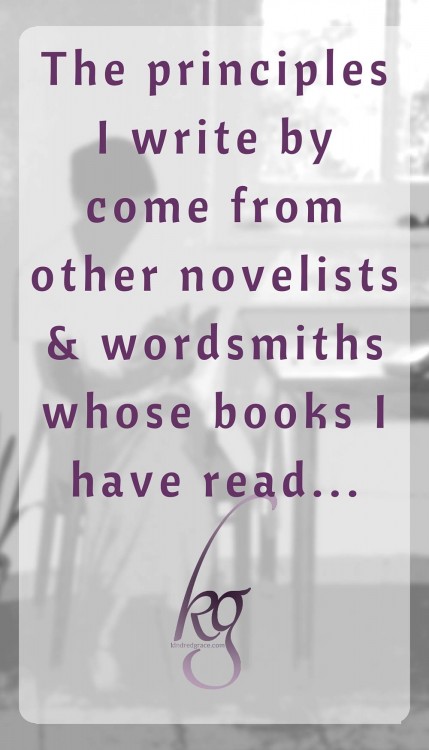The Golden Rules of Writing
Disclosure: This post contains affiliate links which won’t change your price.
Once upon a time, I was required to design a short seminar. Not surprisingly, I chose the topic of writing. So I read (and read), taking some forty pages of notes that translated into an entire mini-course, handouts and all.
I never actually taught that seminar.
But as I reread my notes today, I discovered that God had surprised me. The principles I write by, the ones I repeat to students, clients, and long-suffering friends: yes, those wise words? Many of them come from the novelists and wordsmiths whose books I read and seemingly forgot.
He did it again: stealthily prepared me for an unknown future that was well-known to Him. I can’t think of a better academic adviser for this life-long course.
Can you?
Of that long list of books, my favorites were these:
Simon & Schuster’s Handbook for Writers
Lynn Troyka lifted the hood of the mysterious process of writing, and allowed me to look inside. Huh: A step-by-step process. Mentally taxing, yes, but ultimately as likely to lead to success as following the steps of a recipe. To the stalled writer she says matter-of-factly: You do have ideas. You just need to uncover them. Then (bless her heart) she tells us how.
Keep an idea book: store random and useful thoughts before they are lost.
Journal: “Talk to yourself” on paper for 15 minutes a day. This strengthens your attentiveness and habit of writing.
Freewrite: Gab nonstop about anything that comes to mind, without editing, for a specified length of time or number of pages.
Brainstorm: Take a topic, and list all the random ideas that spring to mind. Then look for patterns and categories.
Use journalist’s questions: Ask Who? What? When? Why? Where? and How? about your topic.
Use mapping: Start with topic in a circle in the center of your paper, and radiate thoughts around it.
Incubate: Allow time (sleep, thinking about another subject, or just letting your mind wander) to let your ideas grow and develop.
Someday You’ll Write by Elizabeth Yates
A seasoned novelist, Elizabeth Yates writes to young women with a mentor’s voice, vividly describing three essentials habits of imagination: observing life as it happens around you, stepping into the thoughts and feelings of others, and keeping your eyes open for the ordinary event or object that sparks a story idea.
For the beginning idea-hunter, she sketches a picture of that elusive beast: the one that sparks questions you want to answer. For the story-plotter, she urges the Golden Rule: invite your reader on a journey worth taking, and at the end, be sure to reward him for his faith in you. For the plodding author, she suggests some disciplines:
Love what you are doing.
Control your time.
Be able to write in any circumstance.
Keep physically and emotionally strong.
Practice your writing weaknesses.
Practice understanding yourself…and others.
Steering the Craft: Exercises & Discussion on Story Writing for the Lone Navigator or the Mutinous Crew by Ursula K. Le Gluin
Ursula LeGuin, too, had the Golden Rule in mind when she urged some focus on punctuation! Why worry about these smallest nuts and bolts of books? Two reasons: It’s hard for readers to trust a sloppy writer. And because the author isn’t there to explain, the written word must be completely clear.
Throughout her book, she made me laugh. Even when she was talking about sentence length, of all things. “The chief duty of a narrative sentence,” she says “is to lead to another sentence.” It can’t be so breathtaking that you stop to admire. Can’t you imagine the author preening himself in the mirror of some epic sentence? Er, I can.
Write Away: One Novelist’s Approach to Fiction and the Writing Life by Elizabeth George
Elizabeth George was my favorite. It helped, of course that she began her book by saying that it’s a myth that only certain people are born able to write. Anyone can learn the craft of writing: they can gain the necessary tools and skills.
The art of writing, on the other hand — the passion and inspiration and discipline — cannot be passed on, she says. Perhaps not. But sometimes spending time with such an artist — even solely through their written words — can mean that some of their attitude rubs off.
As Elizabeth points out, fiction is built on character: who a person is, what he thinks and does, how he responds to life. It’s also built on the character of the writer. For Elizabeth, showing up to write every day is an act of faith. Faith that God gave her talent. Faith that if she can imagine a book, she can finish it, one sentence at a time.
Content if I never get around to novelizing myself, I’m still applying these truths to the writing I edit, the writers I mentor, and the articles I write.



Elizabeth, what a refreshing post about the art of writing. As I read the section of your post regarding jotting down ideas, I chuckled because my husband gifted me with an amazing tool, The Brilliant Ideas Launch Pad, Generate & Capture Your Best Ideas.
I intend to add one or two of your recommendations to my summer reading list.
I loved this! I promptly ordered every book listed from the library. I adore books on writing, even if I never use their advice =)
I especially like the sound of “Someday You’ll Write” and love the look of the disciplines the author shares. Hmm. I may just have added anither book to my book list! 🙂 Thank you for sharing!